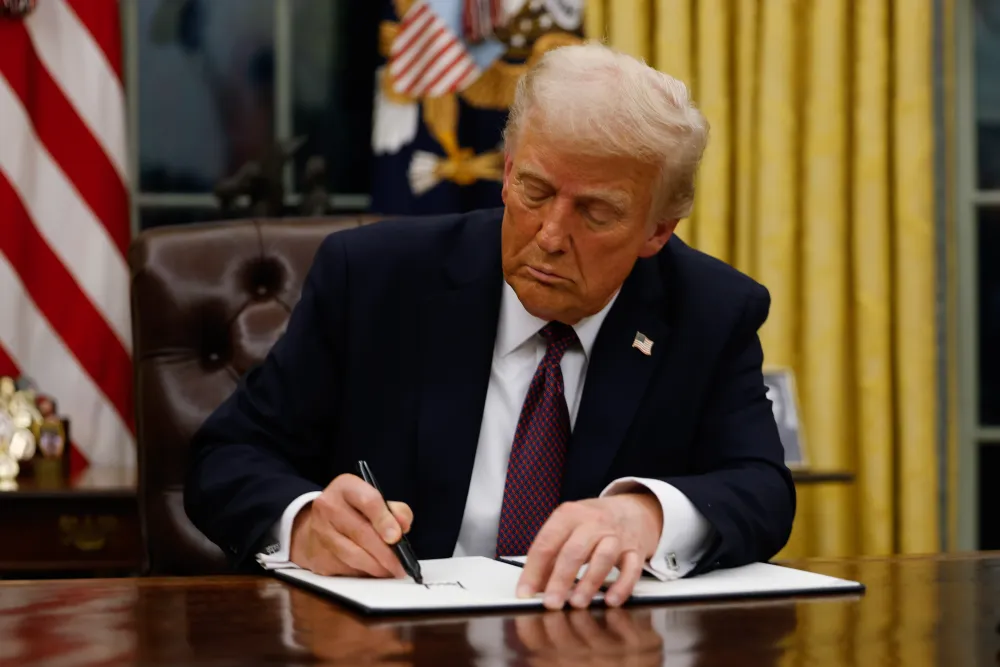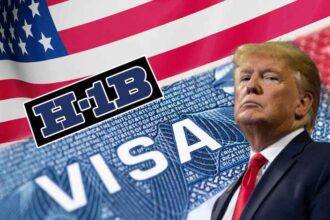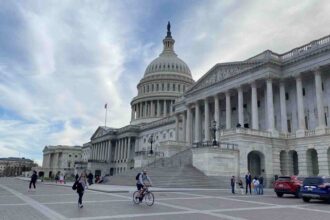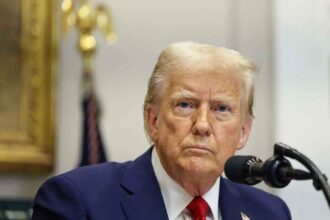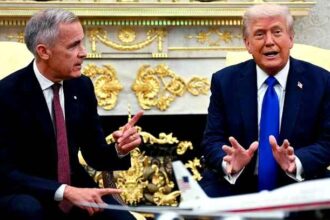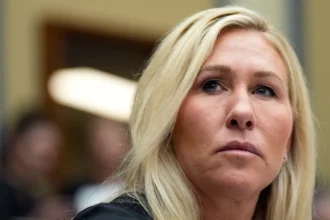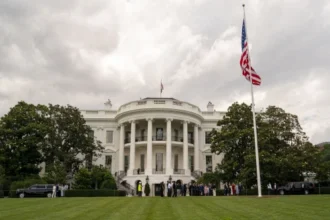A presidential memorandum suggesting the imposition of reciprocal tariffs was signed by President Donald Trump on Thursday. He contends that this tactic will offset unjust and discriminatory tariffs that both allies and enemies have placed on the United States.
The proposed reciprocal tariffs will be customized for each trading partner. The evaluation will be based on five key areas: tariffs imposed on U.S. products, unfair taxation policies, financial burdens on American businesses and consumers, exchange rate imbalances, and other unfair trade practices identified by the trade representative’s office.
Although these tariffs will not take effect immediately, the signing of the memorandum initiates a review process. White House officials indicated that Trump is eager to move quickly, suggesting that the tariffs could be implemented within weeks or a few months.
In the memorandum, Trump has directed Commerce Secretary nominee Howard Lutnick and U.S. Trade Representative nominee Jamieson Greer to collaborate with Treasury Secretary Scott Bessent and Homeland Security Secretary Kristi Noem. Their task is to submit detailed reports outlining tariff proposals for each affected country.
Additionally, Russell Vought, head of the Office of Management and Budget, has been instructed to assess the fiscal impact of these tariffs within 180 days.
Lutnick stated on Thursday that he expects the new tariffs to be imposed on April 2.
“Our studies should be all complete by April 1. So we’ll hand the president the opportunity to start on April 2, if he wants,” Lutnick explained during an Oval Office briefing.
Related: Trump and Putin to Hold Key Peace Talks in Saudi Arabia Over Ukraine Conflict
Trump remains optimistic about the economic impact of these tariffs. He believes they will boost job creation while acknowledging potential short-term price increases.
“I think what’s going to go up is jobs are going to go up, and prices could go up somewhat short term, but prices will also go down,” Trump stated. “Long term, it’s going to make our country a fortune.”
The president has also emphasized the need to address nonmonetary trade barriers. He criticized Japan for its high structural barriers and India for imposing particularly high tariffs. According to a senior Trump administration official, unfair trade practices are not exclusive to rivals like China but extend to allies such as the European Union, Japan, and South Korea.
Trump announced the memorandum just before meeting Indian Prime Minister Narendra Modi at the White House. The timing signals a firm stance on trade relations ahead of key diplomatic discussions.
Furthermore, earlier this week, Trump signed proclamations reinforcing tariffs on all steel and aluminum imports into the United States. These measures aim to prevent countries like China and Russia from circumventing trade penalties.
The administration’s latest moves highlight a push toward a more aggressive trade policy. The effectiveness of these tariffs remains to be seen, but Trump’s determination signals a shift in U.S. economic strategy.


